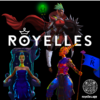
After hearing about the capabilities of the blockchain and its transparency and decentralization, the next term you’ll come up against is inevitably smart contracts. While you don’t need to know everything about the blockchain technology and how it works, it’s useful to get a feel for what a smart contract is. Not least because they are likely to become the new normal across all industries in the not-too-distant future. So, let’s cut to the chase:
What Are Smart Contracts?
A smart contract is a digital contract that verifies and enforces the agreed-upon terms between the parties involved. Smart contracts allow for fast and efficient transactions to take place without the need for lawyers or other third parties. They are self-enforcing and provide security and transparency, while reducing associated contracting costs and middlemen fees.
They also help with the speed of transactions, since smart contracts can ensure payments are made and terms are respected in real time, with no human interaction. Once a transaction has been made, it is irreversible and all transactions are trackable.
Smart contracts can be put to use in any area that can benefit from efficient documentation and reducing corruption. The agricultural industry is an example in which there are many stakeholders involved in the supply chain and much room for error and corruption.
With smart contracts, every stage of the supply chain is regulated and publicly available for anyone to see. Smart contracts are set to resolve the supply chain problem in the tequila industry, and more and more cryptocurrencies are making use of them.
Smart contracts, as with other aspects of the blockchain, allow for the democratization of many industries and the cutting out of middlemen. In the music industry, for example, smart contracts enable the artist to sell directly to the buyer and receive the payment they deserve. They can also be implemented to make sure that any royalties are automatically paid out, each time a song is played in a public place.
Supporting Instant Payments
Smart contracts are essential to supporting instant payments where certain conditions are met. As more and more enterprise blockchain applications roll out, the majority will certainly use smart contracts.
To simplify the function of a smart contract, you can think of it as a small computer program that follows an If/Then structure. For example, if you allow me to gain access to my favorite song or TV show, then I will transfer the funds into your account. They automatically trigger a transfer of information that can reduce human error and make routine processes simpler.
Transactions can be worth pennies, when it comes to a piece of music or the payment for consumer data, or they can run in the millions of dollars. The security is the same. No billing is needed as everything is recorded and the payment happens instantly, removing the worry and delay that happens with bank transfers. Smart contracts can also verify that adequate funding is available before allowing the transaction to occur.
Smart contracts could be one of the most important factors to come out of cryptocurrency, as they could disrupt the entire way we engage in commerce. Companies could launch their own cryptos and engage consumers in their products and ecosystem, in a world in which fiat currencies can no longer compete.
But will that happen anytime soon?
Volatility of Cryptocurrencies Remains an Issue
When arranging payment in cryptocurrencies, one continued problem is how to price a transaction when its value is fluctuating so dramatically every day. This is still an issue with cryptocurrency and not something anyone has an immediate solution for.
For now, one way around this as payments through smart contracts become more widespread, is to use stable value cryptocurrencies, like Tether, LiteCoin or Monero, rather than volatile ones like Ether and Bitcoin.
















Pretty! This was an extremely wonderful article.
Many thanks for supplying this information.
I don’t know whether it’s just me or if perhaps everyone
else experiencing issues with your site. It appears as though some of the written text in your content are running off the screen. Can somebody else please comment and let
me know if this is happening to them as well? This may be a issue with my internet browser because I’ve had
this happen previously. Thank you
hello!,I really like your writing so so much! proportion we keep up
a correspondence extra about your post on AOL? I need an expert in this area to resolve my
problem. May be that’s you! Looking ahead to see you.
fantastic issues altogether, you just gained a new reader.
What may you suggest in regards to your put up that you simply
made a few days ago? Any certain?
hydroxychloroquine price in india https://chloroquine1st.com/
help in assignment writing need help with chemistry homework research paper and report writing
fast working viagra viagra on the web best generic viagra review